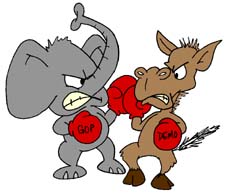This is the analysis that Omar Eltoukhy provided this week for members of my forex mentor group and gave me a decent profit on the Aud! I was too busy to study the markets at the weekend, but having read through Omars analysis I agreed with him and longed the Aud for a nice 50 pip profit.

This is the best way for folks to learn to do this for themselves rather than simply relying on other people.
At the end of the day the priority is to be able to trade forex from your skills.
If you haven’t yet registered for the free training course then DO IT NOW! CLICK HERE – You will discover how to plan trades in advance from analysis at the weekend when the markets are closed. This is the easiest, most profitable way to trade in our experience.
Have a look at what a pro trader looks for and then makes a plan for the week ahead. This was Omars thoughts on the US Government shut down, followed by his detailed forex analysis:
As the genius leaders of this fair nation of mine & and maybe yours as well, of which I currently reside hash out how best to extend their careers in light of the current US government shutdown; we as traders must try and figure out what it means to us.
Over the Summer, as the Syria crisis headed towards a potential American intervention, I became quite worried this would lead to some serious fireworks in the currency market. I wrote articles and sent emails cautioning traders to be on the lookout for some fallout on their charts from any escalation in force from outside that nation. Gladly, it never came to fruition and an extremely ugly civil war left the minds of finance….for the moment at least.
Fast forward to the last couple of weeks. We find the United States locked in a partisan struggle between Republicans and Dems over both the debt ceiling and budget. On one side, the Democrats and Obama refusing to allow any budget or part of a budget to pass without EVERYTHING including the controversial, polarizing socialized medicine scheme nicknamed “Obamacare”. On the other side, the Republicans who have so desperately fought this health-care overhaul despite its passage in a Republican-controlled House and being upheld in multiple Supreme Court challenges. They refuse to fund the new health-care law, and only send forth piecemeal budgetary legislation, funding the government one department at a time. This has led to the complete shutdown of the federal government, save any employee deemed “necessary”. So the markets should be freaking out right??? I should have spoken up about how scary this was much sooner right??? NOPE… Here’s Why:

What I mean by that is when seemingly huge events have consequences that don’t really have a huge impact on the status quo, the markets don’t get too jumpy.
Sure, we have seen moves melt into sludge and go sideways on many pairs, but we have not seen the several-hundred-pip-across-a-few-minutes spikes that normally accompany news with this much money at stake. That’s because no matter what the government decides to do to excuse itself from this crisis and get to the next one, it is in essentially the exact same financial shape (and that shape needs a gym membership) no matter what lawmakers decided to do to end it.
With Syria, the outcomes could have created nightmare situations for the world like potential nuclear usage, or a war extending into other countries’ borders. There would be so many potential unpredictable outcomes which the market could react to quite violently. But there is US news that could rock the markets……you just have to know where to look.
We have increasing uncertainty as to who will take over after Ben Bernanke steps down and that could play a much bigger part in market volatility than the entire US federal government “shutting down”. You see, what traders and the market is really focused on is who is going to mess with the way THEY use money, and the two biggest players in this game are the US FED and the ECB. Both banks (or groups of banks) play an ENORMOUS role in how the markets and especially currency operate.
When you are trading forex, you will find that the markets are usually much more responsive to statements made by these presidents rather than the president of any sovereign nation. An offhand comment by a central bank leader can effect your trading MUCH more than a powerful speech given by the leader of a country. I know many of you are keen to know what to be wary of when it comes to news, and I strongly suggest you watch the big central bankers rather than the politicians even though they rarely, if ever, grab a headline. And when it comes to news, keep an eye on those stories that the market will not be able to predict the outcome of what follows, because those announcements tend to shake up the pips much greater.
There are lots of other examples of forex analysis, all of which will help you learn how to plan the trade and then trade that plan as explained here: How to Plan A Forex Trade & Then Trade The Plan
Forex Weekly Analysis for Week Beginning October 6th, 2013
This post was getting a little long! To See Omar’s analysis and video simply CLICK HERE

0 Comments
Trackbacks/Pingbacks